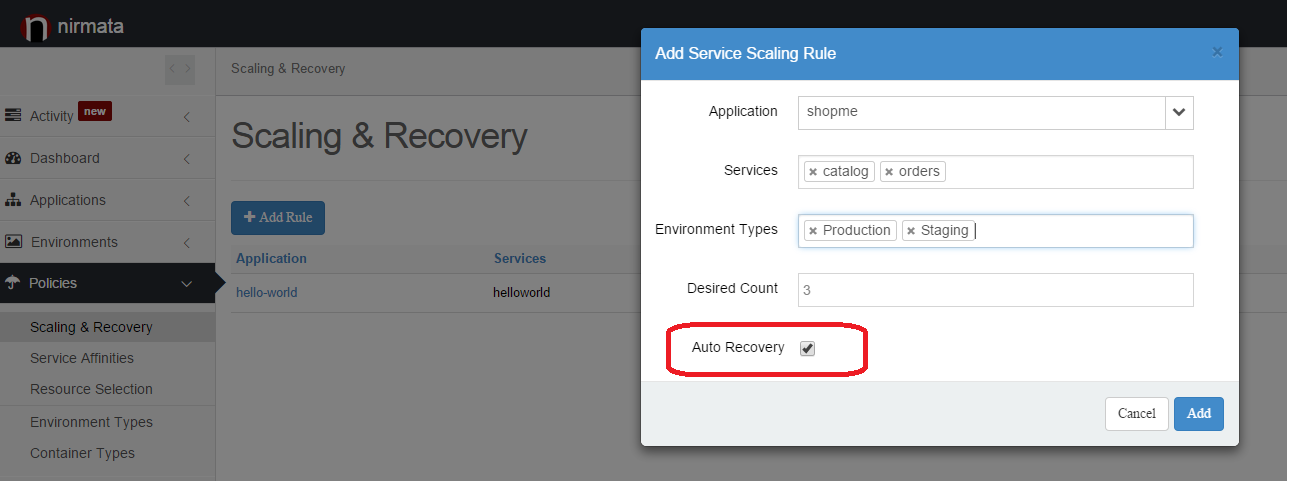Cloud computing accelerates innovation by providing ubiquitous access to computing resources at a click of a button. However enterprises are weary of the costs associated with public cloud, especially as their usage grows.
Easiest way to leverage EC2 Spot Instances with Docker and Nirmata
[fa icon="calendar'] Nov 10, 2015 12:56:18 PM / by Ritesh Patel posted in Containers, Nirmata, Continuous Delivery, Product, microservices, Engineering, cloud, DevOps, AWS, Orchestration, Docker, Cloud Architecture
Auto-Recovery, Activity Feeds, Host Details and More
[fa icon="calendar'] Apr 13, 2015 2:26:57 PM / by Damien Toledo posted in cloud applications, Containers, Cloud native, Continuous Delivery, resiliency, Product, microservices, DevOps, Orchestration, Cloud Architecture
Nirmata is pleased to announce new features and improvements to our solution. Our focus has been on resiliency and state management:
Private Cloud Container Orchestration using Nirmata
[fa icon="calendar'] Mar 11, 2015 3:55:05 PM / by Damien Toledo posted in cloud applications, vsphere, Product, openstack, Orchestration
Private Cloud Container Orchestration using Nirmata
Nirmata has full support for private clouds as part of its Microservices Operations and Management solution. In this post, I will provider some insights into the architecture of this functionality, and walk you through the setup in four easy steps.
Nirmata users can securely manage VMware and OpenStack clouds and Docker Image Registries, in their data center. To connect their Private Clouds, users’ need to run the Nirmata Private Cloud Agent, on a system within their data center that has network connectivity to their cloud management system (e.g. VMware’s vCenter) and/or a private Docker Image Registry. Once the Nirmata Private Cloud Agent is connected, users can then securely provision Host Groups and Image Registries in Nirmata.



